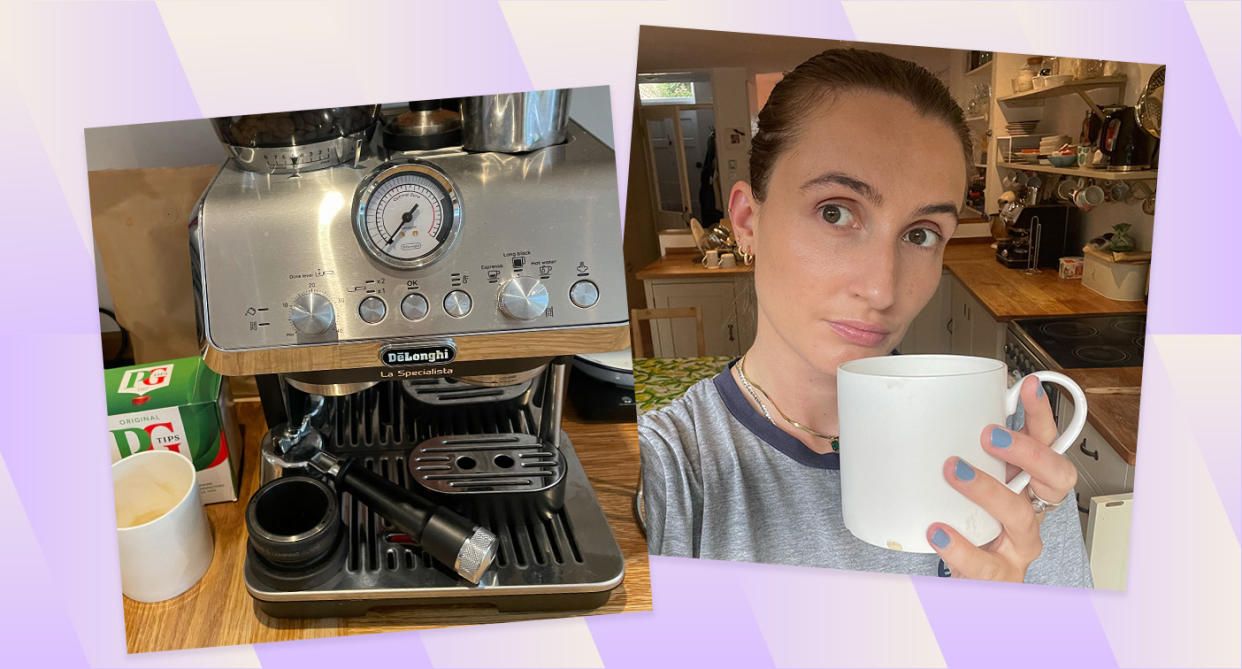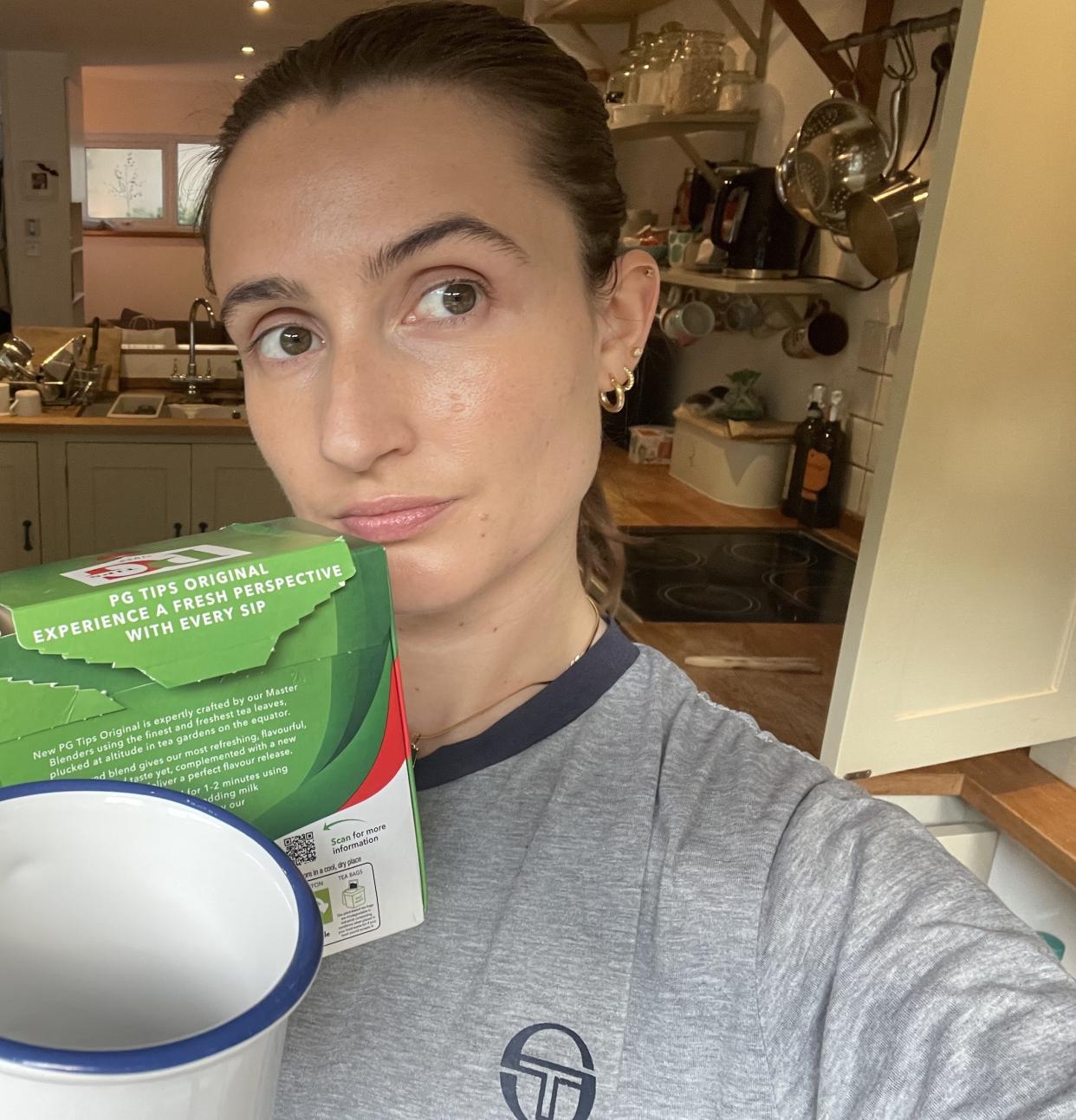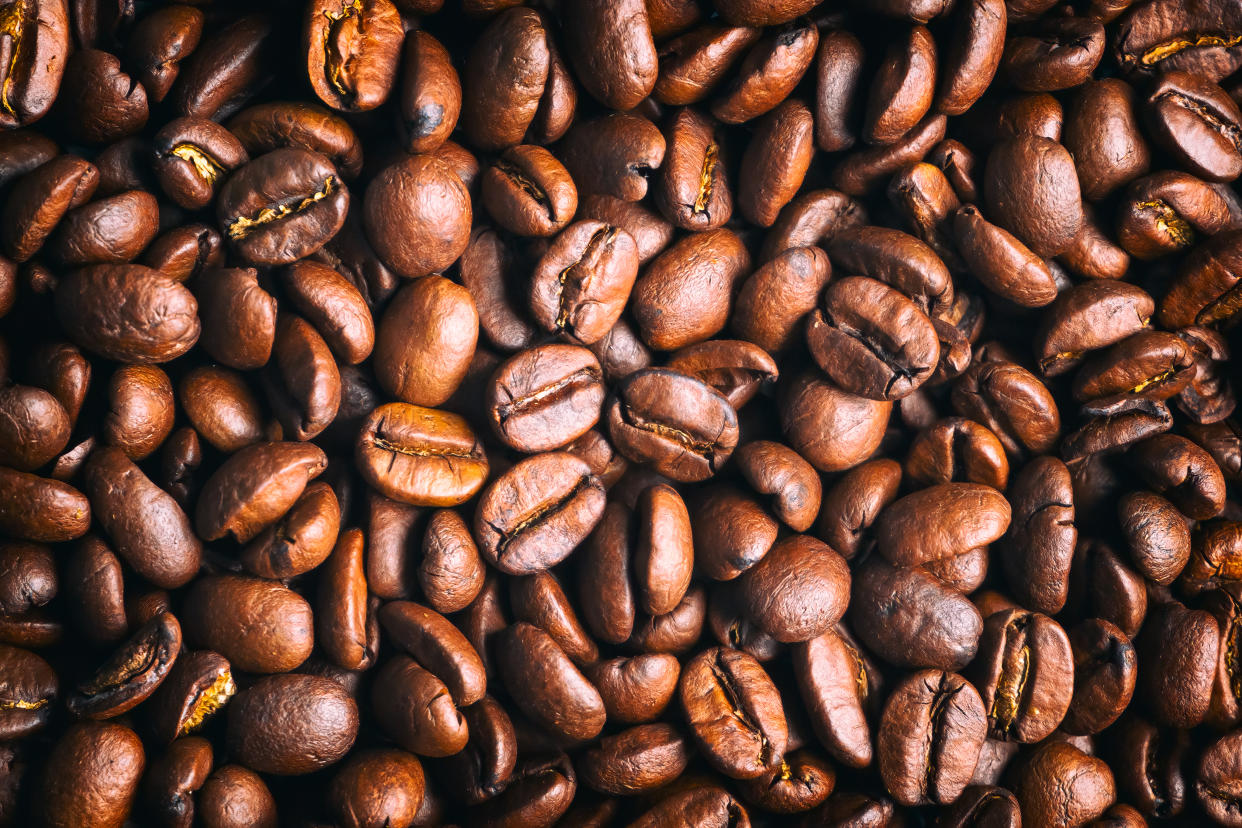I cut out caffeine for a month after a test showed it could be increasing my anxiety. Here’s what happened.

I've always wanted to do a test for food intolerances and sensitivities – admittedly not the most fun aspiration to have, but one I was happy to finally tick off my list.
As someone who suffers from bloating and stomach pain, I was expecting to have a gluten problem, but what actually came back on high alert in red was 'caffeine and anxiety levels'. Apparently my genetic profile is associated with an increased risk of elevated anxiety levels following caffeine consumption.
Ah yes, this was why I tried to limit my summer iced lattes, because every time I had one (despite enjoying them), I felt slightly on the verge of a panic attack...
I tend to try and mainly drink tea for this reason, but what I didn't realise before is how much caffeine is also in tea.
And I'm a big tea drinker, slurping multiple mugs a day.
So, with the feedback from my results suggesting I limit my caffeine intake to avoid symptoms of anxiety or irritability, that's exactly what I did for around a month.
Here's how I got on, how it helped, and what the testing process was like (including what my other results said).
Intolerances & Sensitivities DNA Test at a glance
🧘Health hack reviewed: Intolerances & Sensitivities DNA Test, from MyHealthChecked.
⏰ Time of treatment: 10 mins to take the test, and 1 month of no caffeine.
💸Price: £54.00
✅Pros experienced: From the test - easy to do, clear results, expert nutrition recommendations based on results. From cutting out caffeine - calmer, more balanced, better sleep.
❌Cons experienced: Results take a bit of time, (while not intended to be) not the same as a proper screening or diagnosis.
📝Rating: 4/5
What is an intolerances & sensitivities DNA test?
MyHealthChecked tests if you have a genetic risk of common food intolerances or sensitivities.
It was sent to my home with clear instructions and I did a quick saliva swab before sending it off to the lab in the packaging provided.
A bit like COVID tests, but without the retching...
Along with the results – which promise to be ready within 10 working days – it shares personalised nutrition recommendations 'curated from a team of healthcare professionals'.
My results arrived in the online portal attached to my account eight days later.
It told me I had medium sensitivity to sodium, which may elevate my blood pressure, and suggested I reduced foods rich in sodium like processed meat (I am already veggie, so this did not bother me) and table salt. Apparently seasoning my foods with a sodium substitute, like salts with potassium chloride, could be a good option instead.
It also said I had medium sensitivity to caffeine (separate from the anxiety-related result). If my intake is too high, it could increase my risk of heart disease and elevated blood pressure. Luckily I already don't drink more than four cups of coffee a day (not advised for individuals with my genetic predisposition, as it's associated with increased risk of myocardial infarction and hypertension).
In good news, my alcohol sensitivity was low, though I won't take it as an excuse to drink excessively now.
My lactose sensitivity was also low, and surprisingly, so was my gluten intolerance risk.
Then there was the higher risk for caffeine and anxiety levels.
My body is more sensitive to the stimulating effects of caffeinated beverages and foods by blocking the 'adenosine A2A receptor', inducing anxiety.
It suggested I consume no more than one caffeinated beverage a day, including coffee, tea (black or green), or energy drinks.
Other than a rare fizzy drink I forgot about, I decided to cut out caffeinated drinks altogether. Here's my journey...
My thoughts

Suddenly there was no more sticking the kettle on as soon as I woke up, waiting in need for it to boil before pouring myself a cuppa. No more occasional lattes in the sun. Instead, I was opting for decaf when I wanted a hot beverage, which was a struggle to begin with.
As someone who has dealt with anxiety for a significant period of my life, I was interested to see if caffeine was a key contributor, and whether cutting it out would make any difference.
During the first week, I mainly just noticed my craving for a caffeine fix, especially in the morning.
I'd previously used black tea to help wake me up (I know coffee lovers won't get that, but it makes sense now why I was so sensitive to it) and it gave me an alertness that I liked. But maybe my fairly regular and repeated consumption throughout the day was doing me some damage anxiety-wise overall (due to my genetic predisposition).
I definitely felt more tired without the crutch at first, but then as time passed, while something still felt like it was missing, I noticed myself feeling a little more calm and balanced by the end of the second week.
And now after a month (and more used to the change in routine), it really does feel like my anxiety levels are lower.
It hasn't magically disappeared completely, but I feel almost more grounded day-to-day.
And while it's hard to prove, I also think it's helped my sleep (as someone who's a bad sleeper).
While I still need to be better at getting into bed earlier, when I do eventually drift off, it feels like my slumbers are deeper.
I may have still had these benefits from the allowed one caffeinated beverage a day, but I was keen to test it out fully (apart from those two cokes that slipped my mind!). Though the craving is still there a little...
Pros experienced:
Test easy to do
Clear results
Personalised expert nutrition advice
Informed by the results and advice, I was able to reduce intake of caffeine which helped me feel calmer, more balanced, less anxious and improved my sleep quality
Cons experienced:
Wait time for results not instant
Not the same as a proper screening, consultation or diagnosis with a healthcare professional
Would I do it again?

As it stands, I still haven't started drinking caffeinated drinks again, and I'm undecided whether I will. I might just test out incorporating the one morning tea back into my wake-up routine, which I do miss. And while I can't independently prove cutting out caffeine led to the benefits experienced, the connection seems likely. And why wouldn't I want to feel less anxious?
I think if you can, it seems only wise to check your health and tweak your lifestyle accordingly, if you think a food intolerance or sensitivity could be the reason.
However, for the best insights about my health and nutrition, I'd probably need to have a proper consultation with a healthcare professional. So while there's not much I can fault about this experience, that's the missing ingredient.
This review is based on personal experience and is not a substitute for professional medical or health advice.
Read more: Is hypnotherapy the secret to reducing anxiety? Here's my personal experience(Yahoo Life UK, 7-min read)
Read more: The tell-tale signs of popular food intolerances, according to a nutritionist (Yahoo Life UK, 7-min read)


